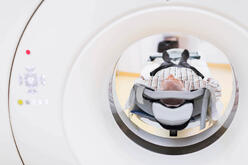 Medical device companies face some of the toughest compliance requirements of any industry—and the rules can vary based on region and the type of device manufactured. In addition, new regulations are passed each year...meaning your medical devices company has to be constantly on the alert to ensure continuous compliance.
Medical device companies face some of the toughest compliance requirements of any industry—and the rules can vary based on region and the type of device manufactured. In addition, new regulations are passed each year...meaning your medical devices company has to be constantly on the alert to ensure continuous compliance.
For all these reasons, it's important to choose an ERP system that will help you ensure compliance with the Food and Drug Administration’s regulations and other regulatory bodies. If you're looking for a new ERP system, be certain that your choice supports these necessary capabilities.
Serial and lot tracking
It’s vitally important for compliance purposes that medical device companies know the history of components that go in to their products. That history may include everything from your supplier’s lot number for purchased components or the date of activities that occurr on your plant floor. None of this is possible unless your ERP system includes full serial and lot tracking to provide complete product genealogy.
Recall management
FDA audits may include simulated recalls, or you may find yourself faced with the real thing someday. In either case, you need an ERP system that uses product genealogy to define and limit the scope of the recall.
Document controls
Part of ensuring compliance is to document procedures and ensure that every employee follows them. An ERP system that enables document attachments and document management can simplify the entire compliance process. Whether you are certifying your processes for the FDA or another regulatory agency, or even for ISO certification, built-in document management is a key factor in simplifying and error-proofing your compliance management.
Quality analysis
Knowing and proving that your product conforms to specifications is crucial to ensuring compliance and preventing potential adverse events or recalls. Your ERP system should be able to capture and report on quality measurements and test results so you have all the information you need in a single repository.
Non-conformance and corrective actions
Despite careful attention to quality, there may be an occasional need to document materials that do not conform to spec, or to change materials or procedures to prevent future problems. An ERP system that includes CAPA and non-conformance recording capabilities helps to streamline the process and eliminates errors that can occur when information must be maintained in multiple systems.
Engineering change control
Electronic engineering change control processing that is built into your ERP system can greatly simplify record keeping and help make sure that your medical device company incorporates changes into production operations quickly and smoothly. The faster ECN processing helps control costs by minimizing scrap and rework.
Warranty tracking
Recording and tracking warranty information helps medical device companies to ensure that products in the field have the latest safety features added. Warranty tracking helps to control costs of service and repairs, and may even increase revenue by providing a mechanism for reminders about replenishing supplies of disposable items.
Integration
In addition to these critical ERP functions, medical device companies will want to ensure that their ERP system’s architecture makes it easy to add or change future functionality requirements. As your company grows, you may find it helpful to add CRM, more advanced quality functions or business process management and workflow—among other possibilities. The right architecture can simplify this process and minimize the disruption to your existing processes.





